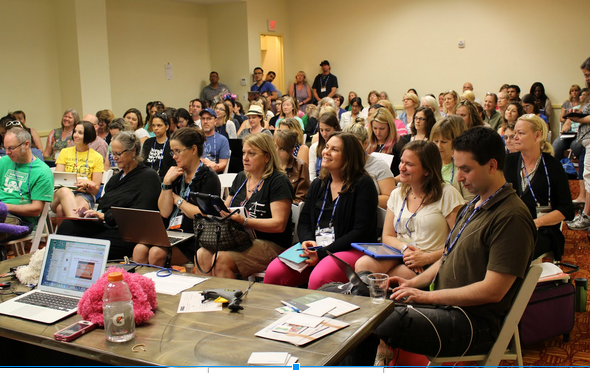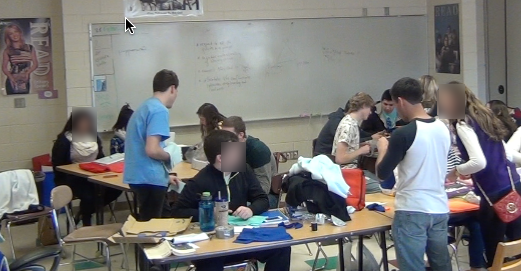As a teacher, I hate the moment the first grades hit the online gradebook, where students start to see them. That moment changes the class. Before that moment, the kids often seem engaged and playful and all-in on the learning; afterwards, it seems I’m fielding vastly more questions about how to get an A than I am about how to improve (reading/writing/arguing/thinking).
I wish I had a good answer as to how to handle grades in a grade-obsessed school culture. To be clear, I’m not just talking about school, district, or state. This is a national obsession that trickles down to students. I have tried to hide them from students for as long as possible, giving just feedback without letters or numbers attached. However, in the days of online gradebooks, there’s not a good way to get away with that--not when students and parents have notifications set up to ding their phones every time it’s updated. And really, it’s just delaying the inevitable “crisis mode” anyway.
So here’s what I’m trying at the moment: flood the gradebook. I talked to Jon Corippo two years ago about this problem, along with the massive paper load that goes along with being an English teacher. He said a couple things that I’m just beginning to understand: first, grade stuff in class, as they compose/as they work. And second, he said that they should be getting 2-3 grades per period, every day. I laughed at the idea at the time, but given the current reality in my classes, that makes a lot of sense. More grades, to the point of flooding the gradebook, makes each one worth less, comparatively. So hypothetically, if each assignment is statistically insignificant, that could in turn cause students to quit focusing on individual points and more on what they’re learning. Right?
Right?
Honestly, I have no idea if this will work. At its core, it’s just trying to work with and work around a highly flawed system, and trying to do right by kids. Either way, more feedback has to be better.
**note: the daffodils have little to do with the post. they are just pretty, and there are a lot of them, like a flood. sort of. you can accept my metaphor, or you can just enjoy the beauty. :-)




 RSS Feed
RSS Feed
